A content management system or CMS is software that allows the development and management of digital web content with a simple interface. Users with no coding skills can use CMS to manage websites. CMS contains two vital components: content management application (CMA) and content delivery application (CDA). By 2023, the market size of content management software is estimated to reach USD 26.13 billion.
Using CMS gives full control of the websites to users who do not need to be tech-savvy. CMS platforms are user-friendly, allow efficient collaborations, support quick upgrades, and are accessible from anywhere. These platforms come with multiple built-in features, add-ons, and security extensions. WordPress is one of the most popular CMS platforms. This article gives an overview of the top 10 CMS in 2023 for revolutionizing the web.
Criteria For Selecting The Top 10 CMS
The worldwide content management system market is relatively huge, as there are plenty of CMS platforms to pick from. In order to pick the top CMS platforms, the below-mentioned aspects are taken into consideration.
- Ease of use
The content management system platforms should make it easier for users to manage and revise the content from time to time. With CMS platforms that have a user-friendly interface, it will be relatively easy for users to control the websites and add new content, even without coding knowledge.
- Customization options
Choosing the CMS platforms that offer customization choices and plenty of custom templates is rather important. With customization options in CMS platforms, users can develop a custom web solution that is compatible with their requirements. Reliable CMS platforms should allow customization so that the content can be presented without any flexibility barriers.
- Security features
Compared to the previous year, the number of total DDos threats increased by 74% in 2022, making security a top priority. CMS platforms must have top-notch security aspects or secure plugins that help in deterring cyber attacks. In order to keep the site highly secure, reliable platforms allow plugins and infrastructure-level modifications. For instance, TYPO3 security features include multi-factor authentication, etc.
- Integration with third-party tools
The content management system platforms should be compatible with third-party tool integrations. It is because integrations with third-party applications are vital for businesses to function smoothly. Reliable CMS platforms will integrate well with third-party tools to enhance the digital experience of the websites.
- Performance and speed
There are a few CMSs that take a relatively long time to implement and load the website, which increases the overall costs. It is vital to choose CMS platforms that are known for their high performance and better implementation and loading speed.
- Cost
There are many free and paid CMS platforms. Even for free content management system platforms, there are some associated costs like third-party designs, add-ons, etc. The paid CMS platforms usually have monthly packages. The price range of paid CMS platforms ranges from USD 2.5K to 40K.
Top 10 Content Management System in 2023
Scroll down to know in-depth details about the top 10 CMS platforms, including their well-known features, pros, and cons.
1. TYPO3
As an open-source CMS platform, TYPO3 development is a highly popular choice for building large-scale websites for global organizations. With its multi-site management feature, users can manage numerous sites from one installation and share information from one site to another. In addition, there are plenty of TYPO3 plugins, and users can alter individual and group access permissions.
The TYPO3 support community is massive. This platform supports multilingual sites and is loaded with built-in security functions to enhance overall safety. With TYPO3 SEO content personalization, users can create customized content that suits their requirements. TYPO3 hosting makes it simple to develop static HTML and other elements
Pros:
- Open-source platform and free to use
- Ideal for developing large-scale websites
- More than 8400 extensions are available
- Plenty of built-in functionality
Cons
- Significant technical knowledge is needed.
- Limited number of TYPO3 themes.
2. WordPress
As of 2021, 40.6% of websites use WordPress, and there were about 58,000+ WordPress plugins. WordPress is the most popular, reliable CMS platform with optimized WordPress hosting. It supports multilingual websites and is accessible in 53+ languages. This CMS allows full customization, and users can utilize a drag-and-drop builder for further personalized designs.
WordPress development is easy, and it features some default post types, but users can add custom post types with the help of plugins. In WordPress 5, Gutenberg editor is launched which allows you to use many media types and organize the format utilizing blocks. WordPress security features include two-factor identification, multi-factor identification, and more
Pros:
- Ideal for developing any type of site
- Great for SEO-friendly content and has SEO plugins
- Maintains a massive support community
- Plenty of free and paid WordPress themes and plugins
Cons:
- It can be hard to customize some pages.
- A few themes lack standard reliability.
3. Drupal
Drupal is a well-known CMS for developing large-scale websites with custom functionality because of its versatile API architecture. This platform features massive, different digital assets libraries. Drupal is mainly built for experts and assists in handling multi-domain management.
With Drupal, it is easy to develop web forms and panels. In addition, there are plenty of built-in systems and plugins that users can add to optimize their websites. Drupal has better security features such as encryption, cross-site scripting, strict transport security, and more.
Pros:
- Multiple built-in modules to enhance site functionality
- Lot of flexible custom content types
- Performs regular security tests
- Fully customizable and easy to use
Cons:
- Should have coding skills.
- Upgrading to new versions takes significant time
4. Joomla
Joomla is another open-source CMS that is one of the prominent choices for developing e-commerce websites and online communities. It is because there are plenty of useful e-commerce store extensions along with multilingual support.
The visual editor feature, content management feature, and search tools are some of the remarkable features. With Joomla, users can utilize numerous themes and templates at once for various pages. This platform has a banner management tool that allows users to develop ad campaigns.
Pros:
- Ideal for e-commerce stores
- Features user-friendly, simple interface
- Lots of document management extensions and templates
- Incredible multilingual features
Cons:
- Limited customization options for site functionality
- Paid extensions might be costly.
5. Magento
For developing e-commerce websites, Magento is the ideal choice as it allows you to manage a hefty number of customers and products. It offers plenty of customization options and third-party extensions to add various features to enhance your store.
This platform features product catalog browsing, inventory management, etc., enhancing the functionality of e-commerce websites. Magento lets you add different payment gateways, such as PayPal, direct bank transfer, and more. It is a mobile-friendly platform with lots of marketing promotions and tools.
Pros:
- Advanced reporting features
- Supports various currencies and languages
- Compatible with several third-party connections
- Complete customization options to enhance site functionality
Cons:
- Extremely costly initial installation.
- It has a complex architecture with layered software.
6. Shopify
For building online stores, Shopify is a credible CMS with high-end plugin options. This mobile-friendly platform allows responsive designs and is easy to use. It is a feature-rich CMS with features like inventory management, CRM, multi-channel marketing, SEO management, etc.
Shopify's product management tools are impressive, as users can utilize various tools to construct product categories, listings, descriptions, etc. This platform features a reliable cart system, payments, robust security functions, inventory tracking, and more.
Pros:
- Multiple default payment options
- Easy to use and simple interface
- Lots of plugins for enhanced functionality
- 24/7 live support and pre-recorded documentation
Cons:
- Fewer template choices
- Slightly expensive
7. Squarespace
Looking to develop visually stunning websites? Then, nothing beats the Squarespace platform. This CMS features plenty of image-focused and design-centric templates, making it easy for users to create websites with great aesthetics. The Squarespace templates are mobile-friendly.
The drag-and-drop editor feature is popular, allowing users to customize the templates, store layout, fonts, etc., without any technical knowledge. This platform has several built-in features like order management, SEO, and more. In addition, it offers shipping and payment integrations.
Pros:
- Aesthetically pleasing website templates
- Plenty of custom content layouts
- Simple editor interface
- Easy and quick setup
Cons:
- Web loading speed can be improved.
- Version updates can be challenging.
8. Wix
Wix is a reliable drag-and-drop site builder that has plenty of e-commerce designer templates. Users can quickly alter the content without any difficulty. The responsive pre-made templates are mobile-friendly. This platform has AI tools like Wix Artificial Design Intelligence that develop custom sites for users.
Wix is ideal for e-commerce sites because it can handle 750 transactions in a second and is compatible with 70+ payment options. In addition, this platform has various features like inventory and order management, order tracking, a secure shopping cart, and more.
Pros:
- Simple drag-and-drop interface
- Has more than 800 quality templates
- Includes abandoned cart recovery function
- App market has plenty of apps for site customization
Cons:
- Comparatively slow website loading speed.
- Changing the template after building the website is not possible.
9. Ghost
Ghost is an open-source headless CMS that is ideal for building blogs. Users can efficiently create customized blogging websites using personalized themes and plugins. This platform offers built-in SEO support without the need for any plugins. Some of its features include content management, collaboration tools, reporting, etc.
With the Markdown feature, users can format text in italics, bold, etc., using special characters. The content editor on this platform utilizes cards. This platform offers numerous inbuilt integrations and is compatible with custom integrations as well.
Pros:
- Plenty of themes and integrations
- Offers built-in SEO support
- Allows customization
- Offers a free trial and free plans
Cons:
- Technical skills are necessary for self-hosting.
- Does not support native comment functionality.
10. Weebly
Weebly, currently known as Square Online, is a fundamental CMS platform ideal for small businesses because of its e-commerce features. It is a simple drag-and-drop website builder with numerous templates that allow users to build a personalized site for their business.
With Weebly, users can shift the site template effortlessly. This platform offers more than 300 third-party app integrations. It supports many payment gateways and has a powerful, SSL-encrypted shopping cart.
Pros:
- Good loading speed
- Responsive designs and custom templates
- Easy to use and mobile-friendly
- Unlimited website page limits
Cons:
- Limited built-in photo editor functionality
- No built-in forum
Conclusion
CMS platforms are a great help for building websites for users with minimal or no coding skills. However, there are some CMS platforms for tech-savvy users to create customized websites with enhanced functionality. Some of the factors to pay attention to while choosing CMS are ease of use, speed, customization options, budget, integrations, security, scalability, support, and more.
To pick the right CMS, users should consider their website needs and requirements. TYPO3 is one of the best all-around CMS options because it offers plenty of extensions, has security features, allows customization, supports multilingual sites, and is great for building professional-looking websites.
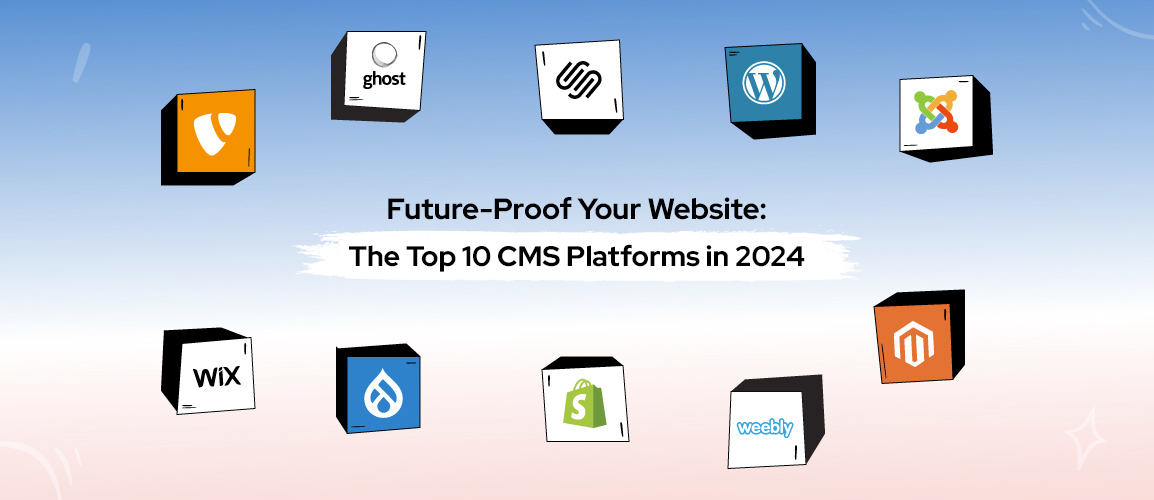
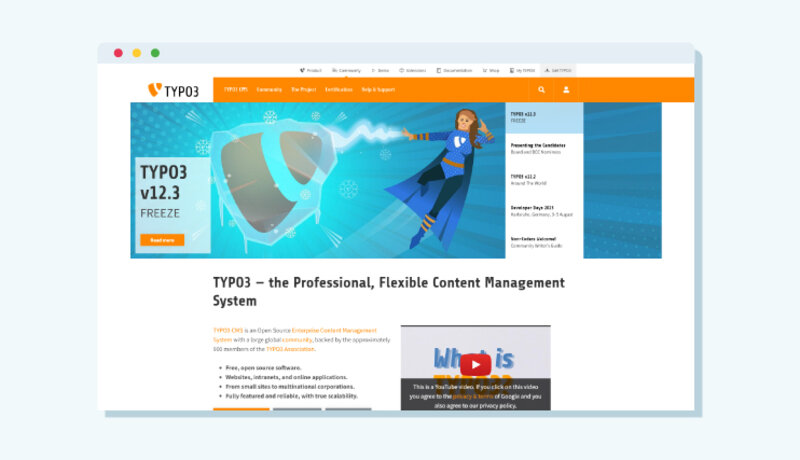

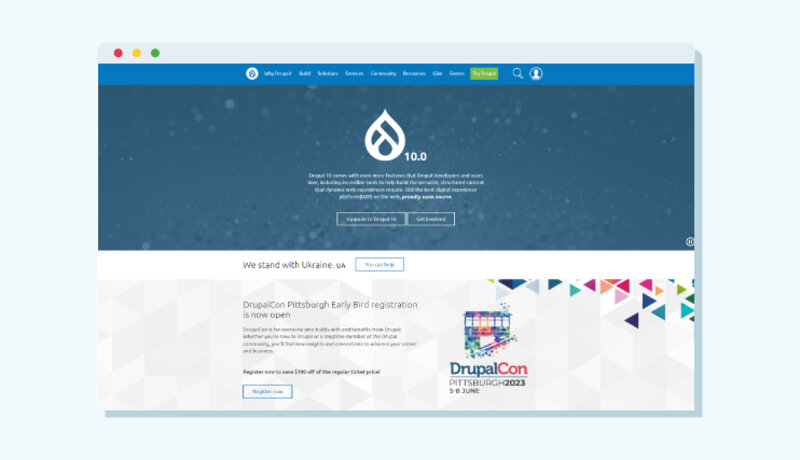
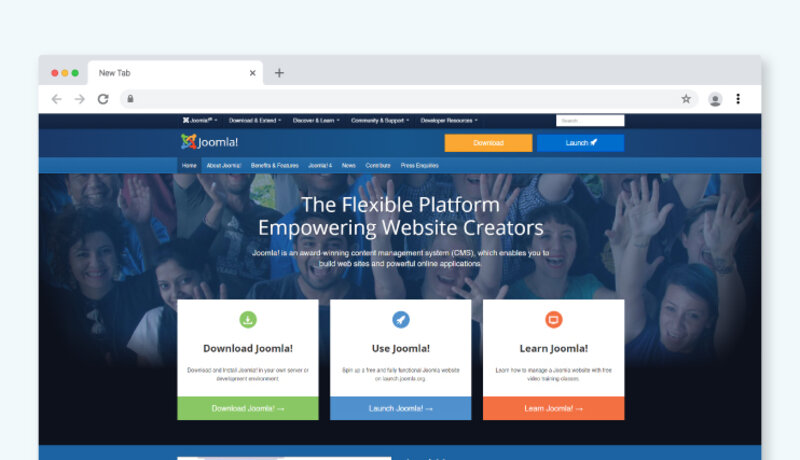


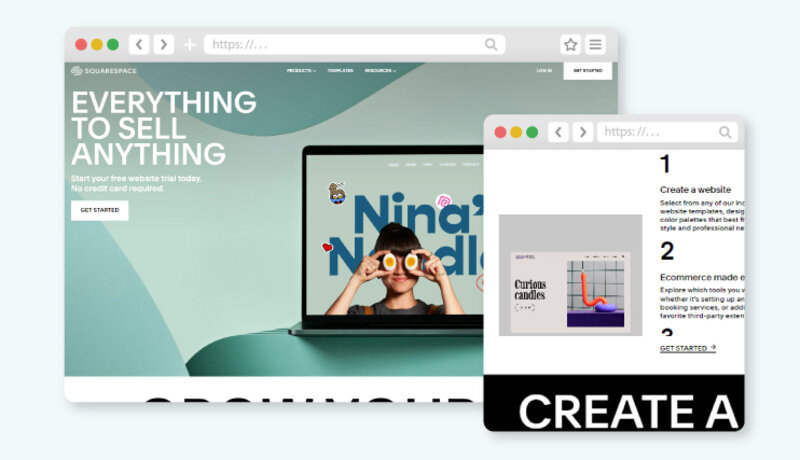




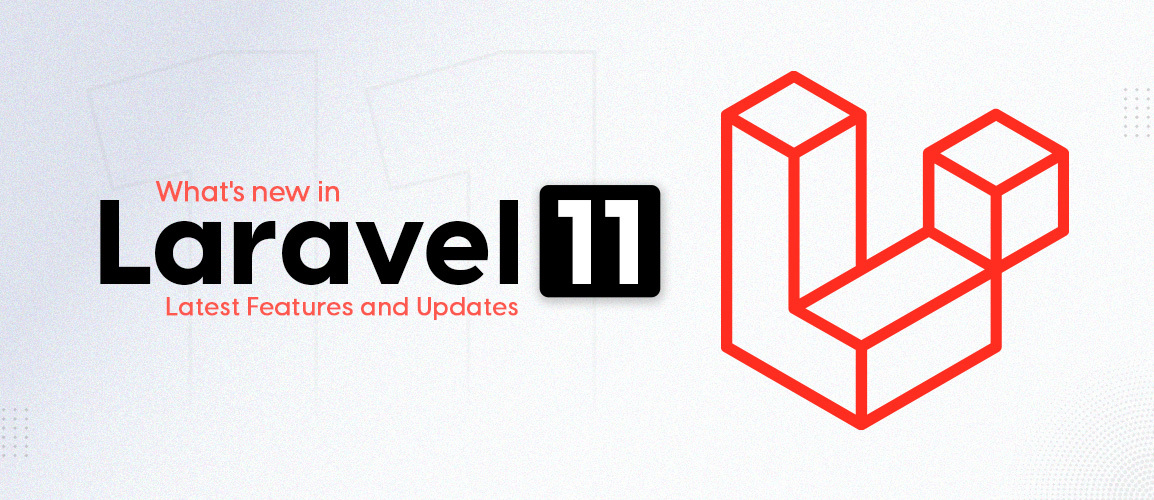


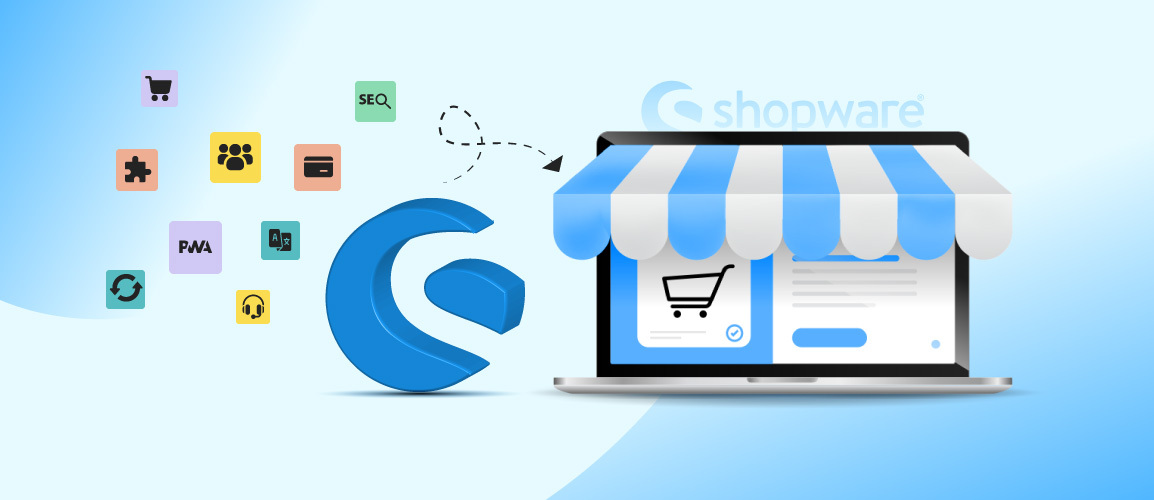
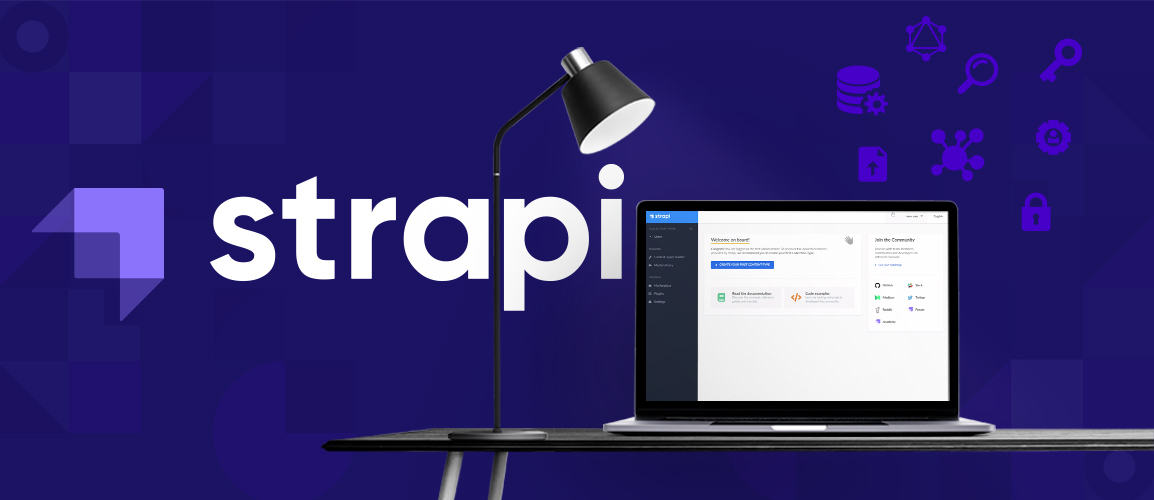
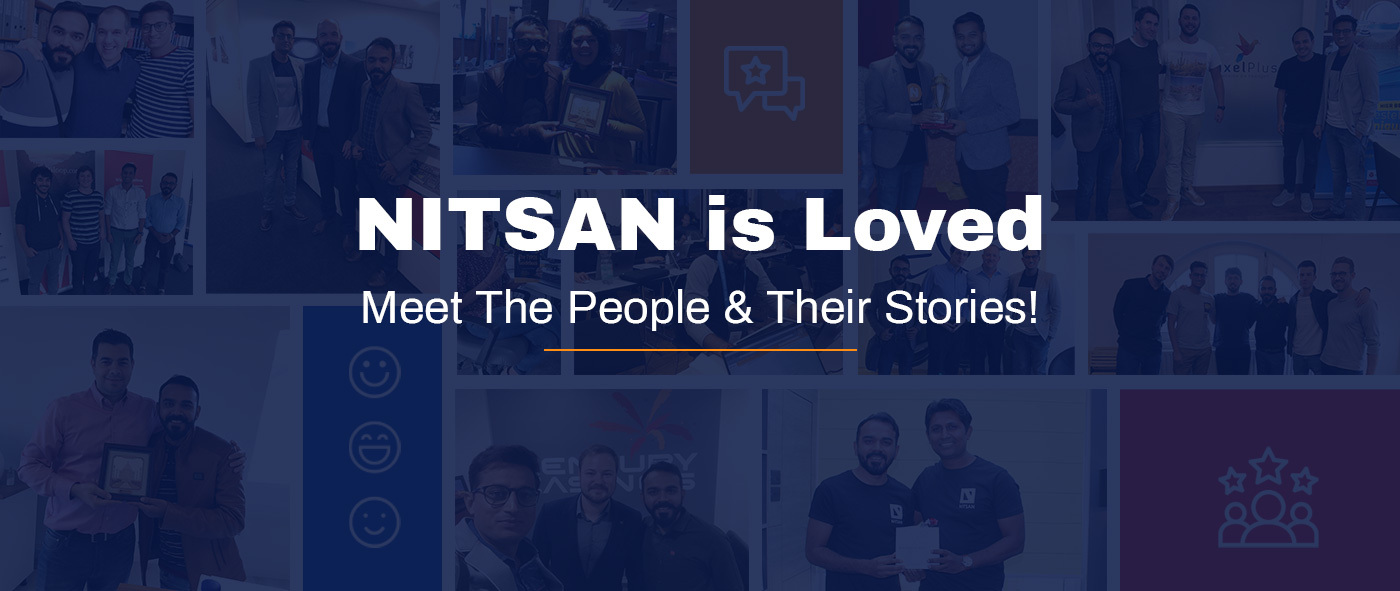
Comments and Responses